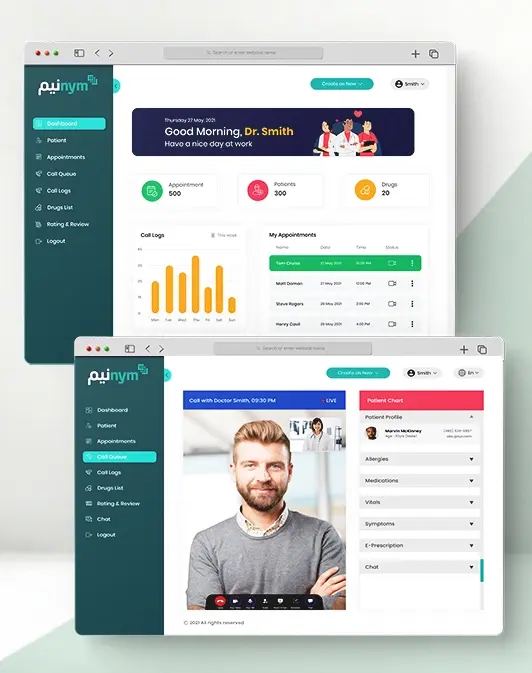
Flask vs. Django: An In-Depth Analysis of Python's Top Web Frameworks
In the realm of web development, Python has emerged as a prominent player, thanks to its versatile frameworks that streamline the process of building web applications. Two of the most popular Python frameworks, Flask and Django, stand out as frontrunners. While both Flask and Django share the common goal of facilitating web development, they cater to different preferences and project requirements. In this comprehensive analysis, we will delve into the nuances of Flask and Django, comparing their strengths, weaknesses, and use cases.
Flask: Embrace Simplicity and Flexibility
Introduction to Flask
Flask, often referred to as a micro web framework, is designed to be minimalistic and lightweight. It provides the essential tools required to get a web application up and running without imposing any unnecessary components. Flask operates on the principle of simplicity, allowing developers to have maximum control over the components they integrate.
Strengths of Flask
Flexibility: Flask offers a high degree of flexibility, enabling developers to pick and choose components based on project requirements. This approach leads to leaner applications that only include the necessary features.
Minimalistic: Flask's minimalistic approach means less overhead and a smaller learning curve for developers. It empowers developers to customize each element of the application to their preferences.
Modularity: Flask encourages modularity by supporting a wide range of extensions. Developers can integrate extensions for features like authentication, database management, and more, as needed.
Ideal for Small Projects: Flask's lightweight nature makes it ideal for small to medium-sized projects where a full-fledged framework like Django might feel like overkill.
Weaknesses of Flask
Lack of Built-in Features: While Flask's flexibility is a boon, it can also be a drawback for complex projects. Developers might need to rely on third-party extensions or libraries to implement certain features that Django provides out of the box.
Learning Curve for Beginners: Flask's flexibility can sometimes result in a steeper learning curve for beginners who are new to web development concepts.
Django: The Full-Stack Powerhouse
Introduction to Django
Django, on the other hand, positions itself as a full-stack web framework that comes with a plethora of built-in features. It is designed to minimize repetitive tasks, allowing developers to focus on creating robust and feature-rich web applications.
Strengths of Django
Batteries-Included Approach: Django's comprehensive nature includes a wide array of built-in features, such as authentication, URL routing, database models, and more. This accelerates development by reducing the need to implement common features from scratch.
Rapid Development: With its built-in admin panel, Django accelerates development by offering an easy way to manage and update database records without extensive manual coding.
Security Features: Django is known for its robust security features, including built-in protection against common web vulnerabilities, such as cross-site scripting (XSS) and cross-site request forgery (CSRF).
Scalability: Despite its extensive feature set, Django's design promotes scalability, making it suitable for both small projects and large-scale applications.
Weaknesses of Django
Complexity: Django's wide range of features and conventions can lead to a steeper learning curve for newcomers. Developers might feel overwhelmed by the sheer volume of options available.
Overhead for Small Projects: While Django is excellent for larger projects, its comprehensive nature might introduce unnecessary overhead for smaller projects where a more lightweight framework like Flask could suffice.
Use Cases: Choosing the Right Framework for Your Project
When to Choose Flask:
Prototyping: If you're in the early stages of a project and need to quickly prototype a concept, Flask's simplicity and flexibility can be a great advantage.
Microservices: When developing microservices or APIs, Flask's lightweight nature makes it a preferred choice. You can build and deploy specific services without the bulk of a full-stack framework.
Customization: If your project requires precise control over components and you want to avoid unnecessary overhead, Flask's modularity and customization options are ideal.
When to Choose Django:
Enterprise-Level Applications: For complex, feature-rich applications where security and scalability are paramount, Django's built-in features and conventions provide a solid foundation.
Content Management Systems (CMS): If you're building a CMS or a data-driven application, Django's admin panel and powerful ORM (Object-Relational Mapping) system can simplify data management.
E-Commerce Platforms: When developing e-commerce platforms, Django's security features and robustness make it a suitable choice for handling sensitive customer data.
Conclusion
Choosing between Flask and Django boils down to your project's requirements and your personal preferences as a developer. Flask's flexibility and minimalism are perfect for small projects and those who prefer to have control over every aspect of their application. On the other hand, Django's comprehensive nature and built-in features make it a strong contender for larger projects and those who value rapid development and security.
At SISGAIN, we provide web development services tailored to your specific needs, leveraging the latest technologies to bring your vision to life. Whether you opt for Flask's simplicity or Django's power, our experienced team can guide you through the development process, ensuring a result that aligns perfectly with your goals. Contact us today to embark on your web development journey with confidence!



